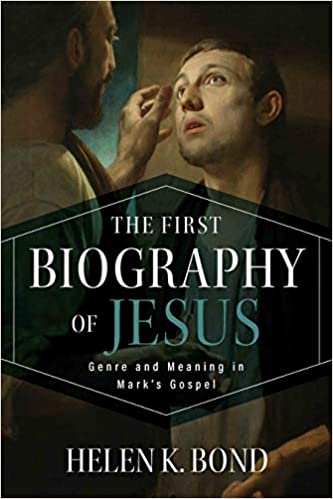BEN: One of the questions Chapter 3 raises for me at least, is whether any of these ancient bioi are seeking to present a novum, in this case a new sort of conversionist religion in an evangelistic way, a religion that was likely to be viewed as a ‘superstitio’ by many in the pagan world, or just plain absurd (see the famous catacomb graffito of a crucified man being worshipped, and the man on the cross has the head of a donkey). I don’t think any of these parallel ‘lives’ were under the same sort of constraints and issues that Mark was when he wrote, especially when it comes to the issue of historical accuracy, or the factual basis of the earliest Gospel. In short, I don’t think a Jewish writer for a tiny minority sect would have felt or had the freedom to wander across the spectrum from facts to fiction when you are trying to make plausible the notion of a crucified and risen early Jew as the Son of God. The very bedrock of the story itself was hard enough to persuade people about, whether Jew or Gentile, never mind the accounts of some of Jesus’ miracles (e.g. exorcisms) and hard sayings. How would you respond to this sort of rumination?
HELEN:
I’d probably go and get another coffee . . .
My first query would be whether you’re right that Mark wants to present ‘a new sort of conversionist religion in an evangelistic way, a religion that was likely to be viewed as a ‘superstitio’ by many in the pagan world.’ I think his goals were rather more modest – to harness the life of Jesus into what was generally referred to as ‘gospel’ and to present this as a model for Christ-followers. I’d also want to note that Mark’s difficulties with a crucified Son of God were not drastically different to Plato’s with the death of Socrates (executed of course by decree of the Athenian assembly for atheism and corrupting the youth). Many philosophers died as martyrs to their teaching in the face of jealous hostile authorities/tyrants (and Philostratus has much to say about this at the end of his Life of Apollonius of Tyana). What mattered most was the way that the story was told. So Plato redeemed Socrates’ hideous death from hemlock poisoning by describing it as the peaceful departure of his soul. It’s interesting that Mark doesn’t adopt this approach: he faces crucifixion head on, providing us with the longest account of crucifixion from antiquity, and makes no attempt to hide the shameful and servile nature of Jesus’ death. Where he does seek to redeem it, however, is both in the constant insistence that it’s the will of God and the clear indication that Jesus (as a good philosopher) has died in accordance with his teaching on self-denial and servanthood.
So all of that raises huge questions for me over ‘historical accuracy’ and what we mean by that. Plutarch says that the goal of biographers is to expose the ‘soul’ of the subject and there’s a great deal of scholarly discussion around Plutarch’s heroes and the extent to which he presents historically accurate accounts. Here, of course, his biographies can be checked against the many historical works that treat the same characters; and Plutarch gets mixed reviews – in general terms he’s fairly accurate, but he’s quite happy to alter timings of events and even who did what, where and when, in pursuit of his overarching aims. Interestingly, even the writers of modern research biographies recognize the need sometimes to resort to fiction in the attempt to create a life. Hilary Mantel speaks of the historian/biographer being in the business of raising dead bones, and freely acknowledges the level of imaginative fiction that a biographer needs to include. I’ve been thinking a lot about anecdotes since my dear colleague Larry Hurtado died last year. Straight away, friends and colleagues started sharing Larry-stories with one another, some were contradictory, some clearly exaggerated, and a few seemed very unlikely. But we all shared them around quite happily, not because we believed they were ‘historically accurate’ but because they captured something of the ‘soul’ of the man we remembered. I think many of Mark’s stories are the same: there may be a basis in historical fact here and there, but the main thing was that they captured something of Jesus’ true identity. The ancients were far better attuned to this way of thinking than we are, hampered as our thought-processes have been for so long by historical positivism.












